
Dietary guidelines for healthy ageing
UTAR Centre for Corporate and Community Development (CCCD) organised a webinar titled “Elderly Health Diet” via Zoom on 21 February 2021. The webinar gathered over 100 participants and provided an opportunity for them to understand more about healthy diet.
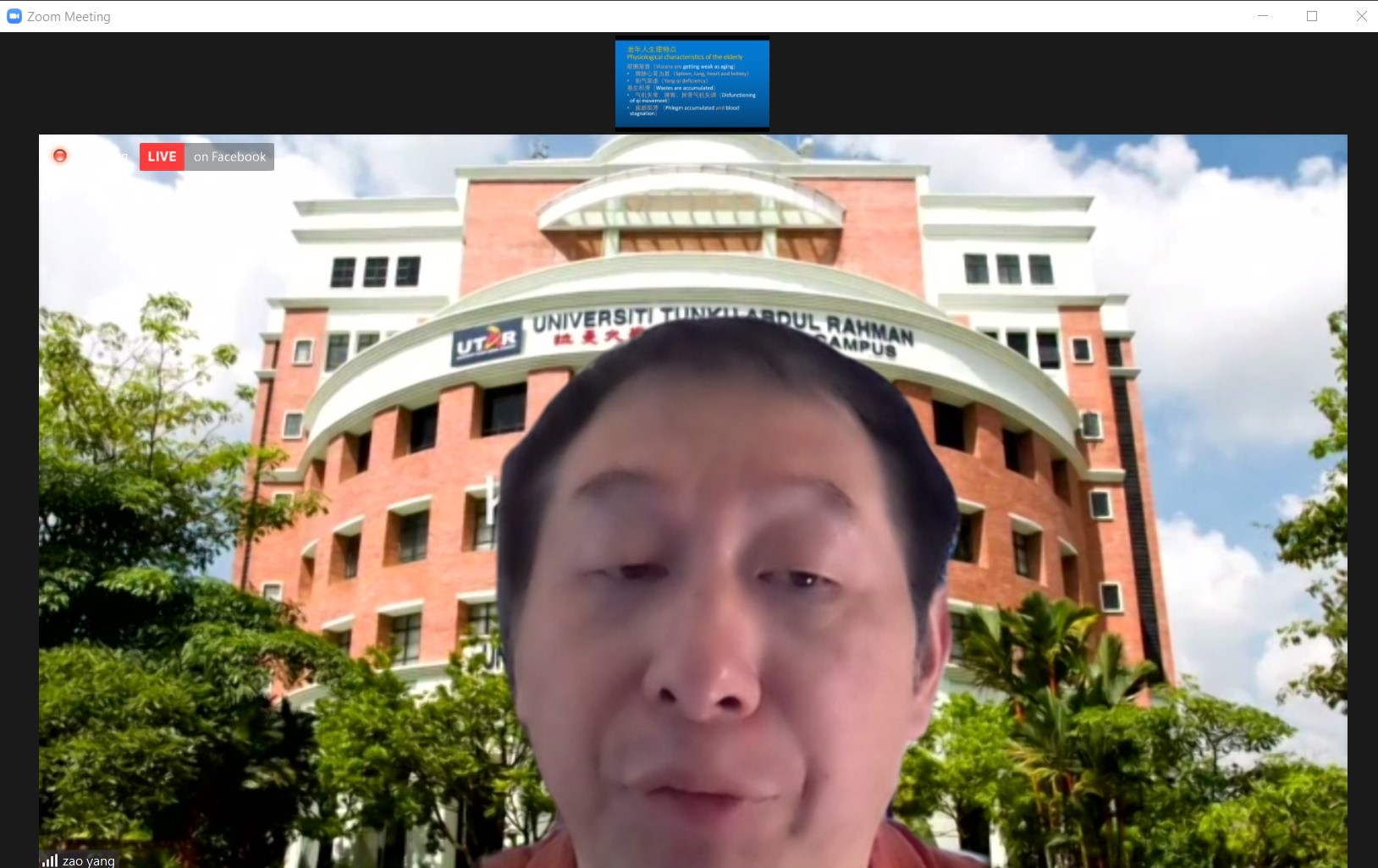
Dr Yang speaking at the webinar
Delivering the talk was Faculty of Medicine and Health Sciences (FMHS) Department of Chinese Medicine Assoc Prof Dr Yang Zao. In his talk, Dr Yang first shared the physiological characteristics of the elderly. He explained that the visceral organs would get weaker as one ages, especially the spleen, lung, heart and kidney. Besides genetics, diet is also one of the factors that influence the viscera. He mentioned that people should eat a balanced diet in order to get the nutrients to boost metabolism.
“Yang (阳) is generally the most vigorous in a human body compared to yin(阴). When a person gets older, their mobility will gradually decline. This is the manifestation of the waning of yang qi,” he said. He explained, according to Traditional Chinese Medicine (TCM), an elderly will normally face problems such as waste accumulation, dysfunction of qi movement, phlegm accumulation and blood stagnation.
He then shared the dietary principles for the elderlies, emphasising a balanced diet and the harmony of the five tastes of food. He advised the elderly to chew the food slowly and be more mindful of what they're eating, as well as to eat a wide variety of foods in order to keep a good digestive function. He also encouraged individuals to choose appropriate diets according to their health condition and local weather.
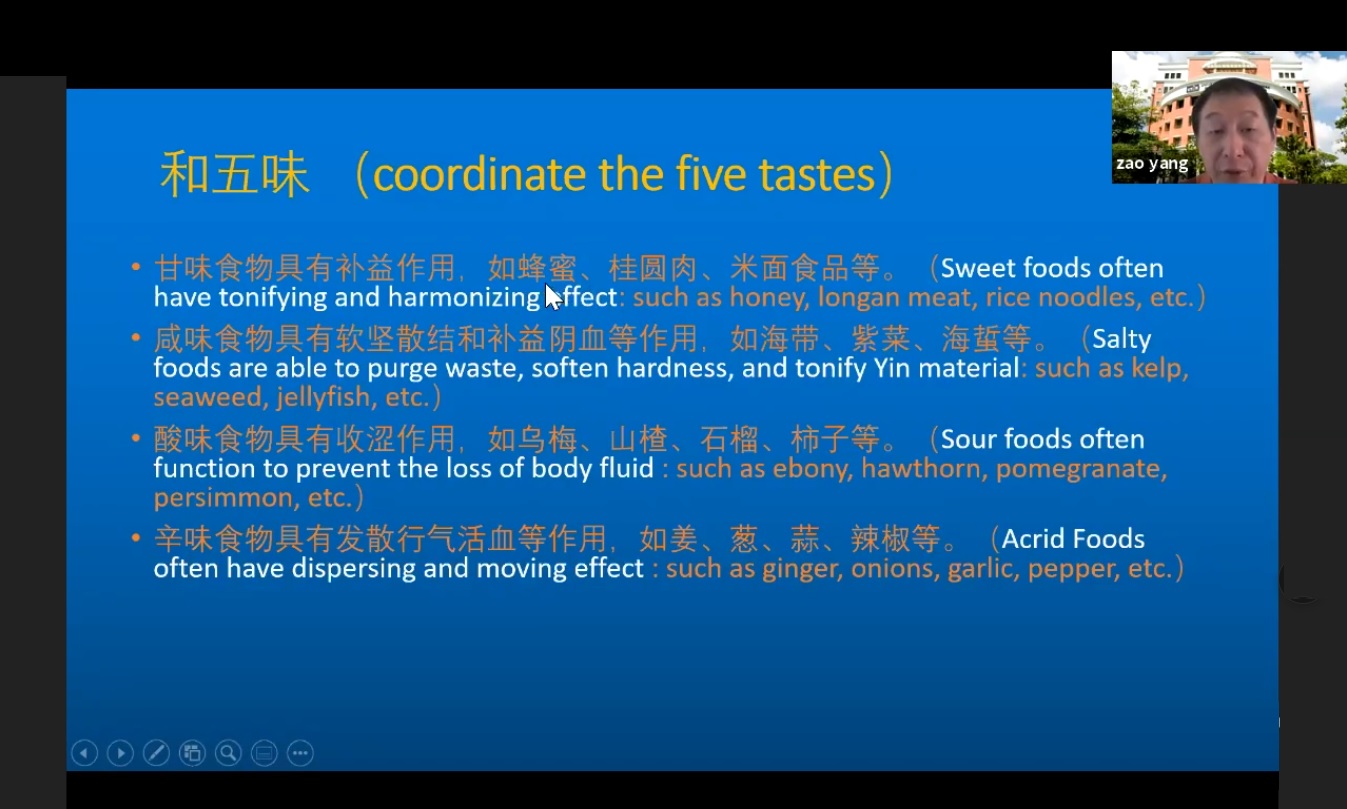
Dr Yong explaining how to use the five tastes to maintain health
“Establish a regular eating schedule; it is not good for you to eat all the time or whenever you like. Your stomach needs time to digest and rest,” he said. He also mentioned that people who cook at home more often, rather than get take-out, have an overall healthier diet. He also advised people to avoid raw foods, but take soft and cooked food instead.
“Loss of muscle mass is common as we age. Therefore, the elderly should take more good quality protein such as meat protein,” said Dr Yang. He emphasised the importance of eating a variety of fruit and vegetables, and advised the elderly to restrict their intake of red meat as well as to avoid consuming empty calorie food.
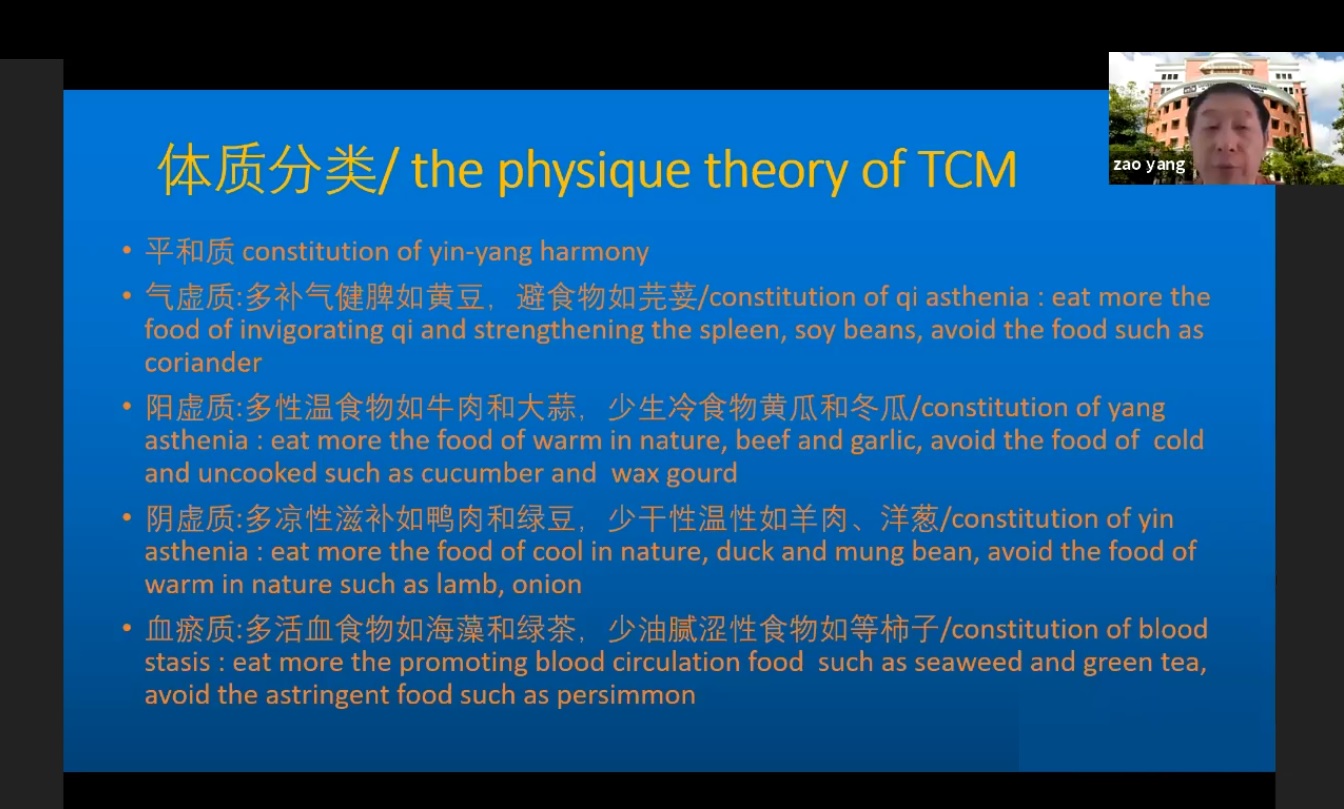
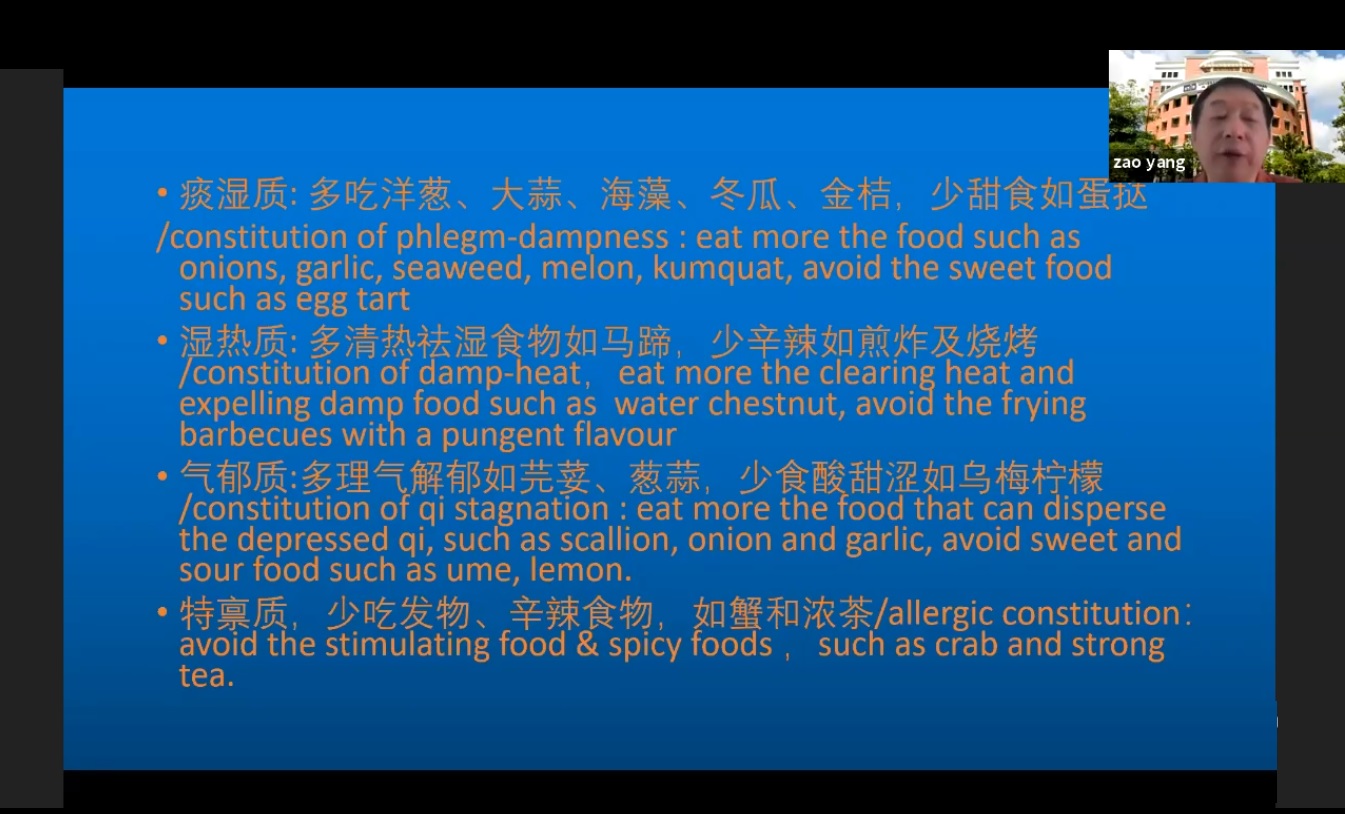
Dr Yang presenting the different types of body constitution
He also explained the physique theory of TCM and shared the nine types of body constitution in TCM, which included the constitution of yin-yang harmony, constitution of qi asthenia, constitution of yang asthenia, constitution of yin asthenia, constitution of blood stasis, constitution of phlegm-dampness, constitution of damp-heat, constitution of qi stagnation, and allergic constitution. He further provided guidelines for a healthy diet and presented some common health foods which were good for the elderlies. The webinar then ended with a Q&A session.
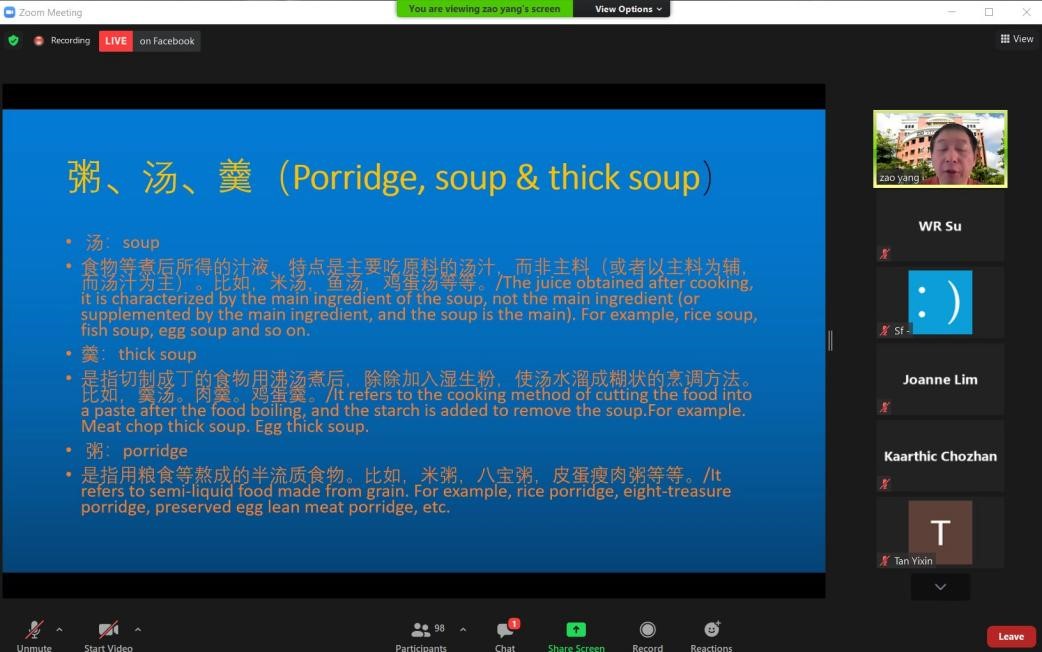
Dr Yong explaining the difference between porridge, soup and thick soup
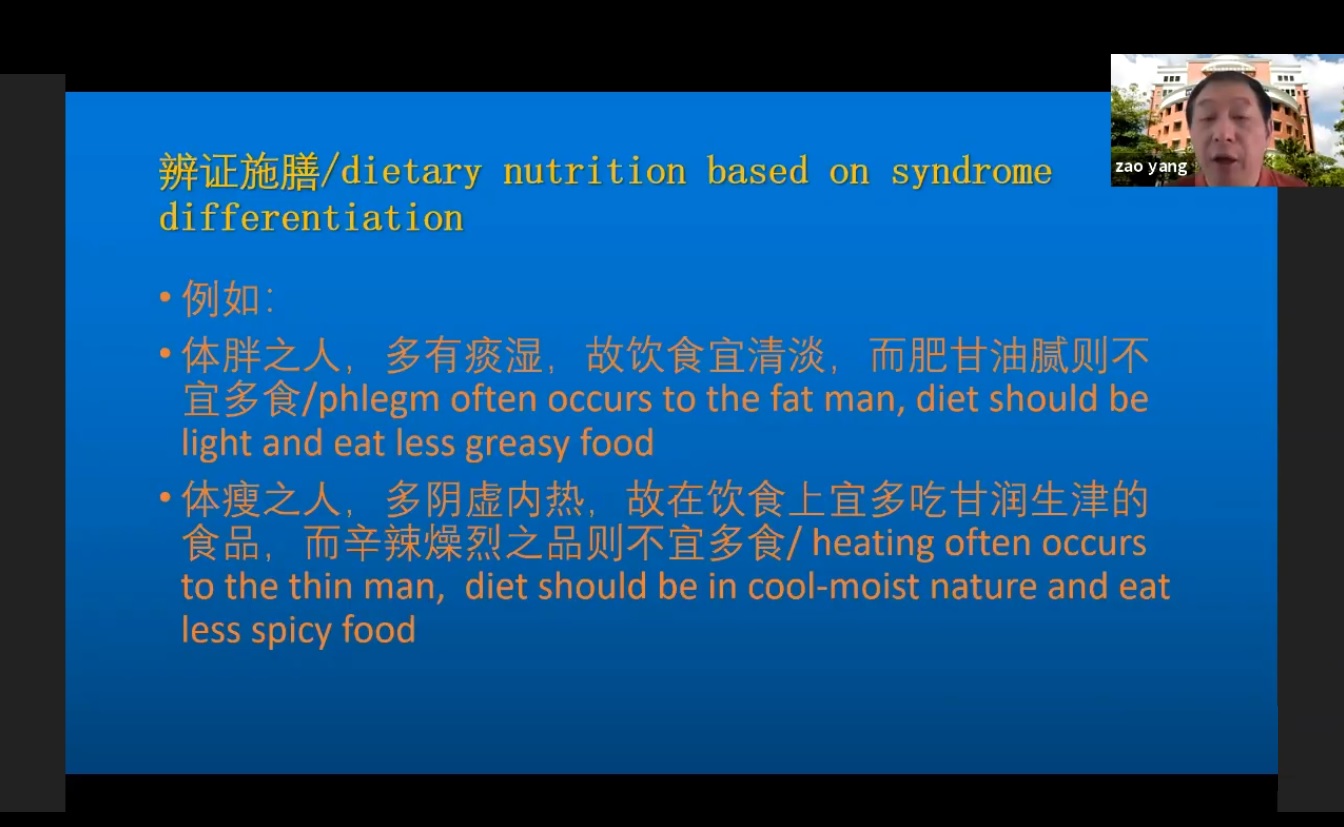
Dr Yong advising people to practice eating based on syndrome differentiation
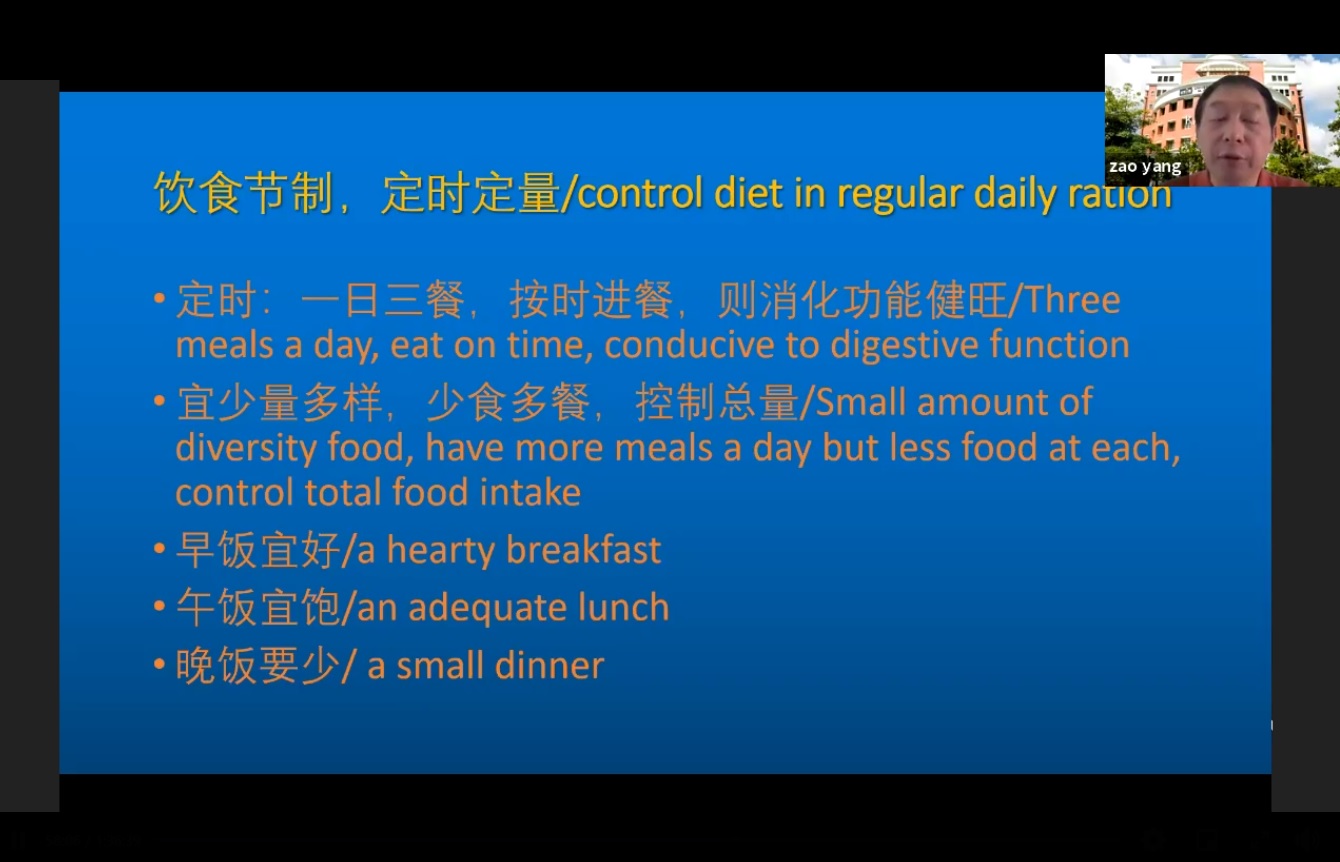
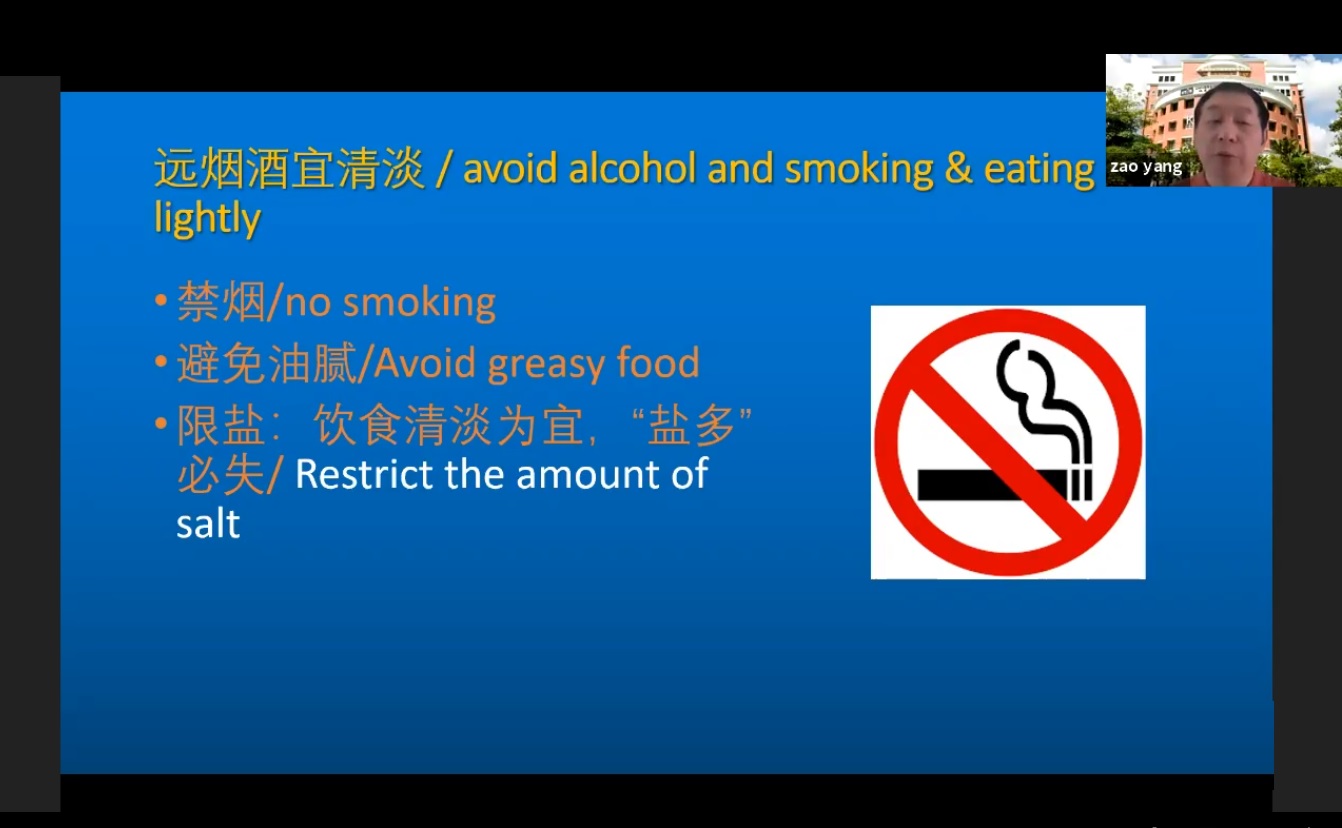
Dr Yong providing healthy dietary guidelines
![]()
© 2021 UNIVERSITI TUNKU ABDUL RAHMAN DU012(A).
Wholly owned by UTAR Education Foundation Co. No. 578227-M LEGAL STATEMENT TERM OF USAGE PRIVACY NOTICE